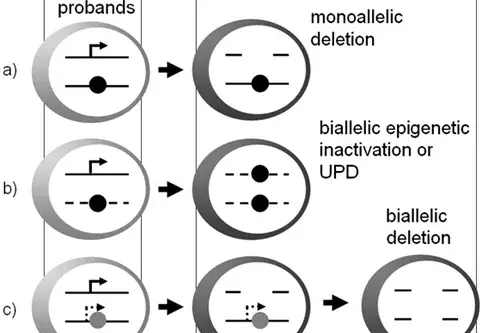Mechanisms of Leukemogenesis
- Functional and Structural Genomics

Dr. Daniel Mertens
Cancer patients die from resistance to therapy and metastasis. These processes are based on genetic and epigenetic aberrations and require the support of the tumor microenvironment that supplies pro-survival and protective stimuli.

Our Research

Understanding the molecular mechanism of these processes will allow one to target aberrant (epi)genetic pathways, interrupt the support of the microenvironment and address resistance to therapy. The Cooperation Unit between the DKFZ and the University Hospital of Ulm is ideally suited to translate molecular findings on chronic leukemia towards clinical application with respect to prognostication and therapy.
Overview of projects:
- The microenvironment as a therapeutic target in chronic lymphocytic leukemia.
- Ubiquitination and NOTCH1 signaling in leukemia.
- Epigenetic aberrations explain leukemogenesis and help prognostication of patients.
Team
-

Dr. Daniel Mertens
-
Deyan Yosifov
Selected Publications
Yosifov DY, Idler I, Bhattacharya N, Reichenzeller M, Close V, Ezerina D, Scheffold A, Jebaraj BMC, Kugler S, Bloehdorn J, Bahlo J, Robrecht S, Eichhorst B, Fischer K, Weigel A, Busch H, Lichter P, Döhner H, Dick TP, Stilgenbauer S, Mertens D.
Mallm JP, Iskar M, Ishaque N, Klett LC, Kugler SJ, Muino JM, Teif VB, Poos AM, Großmann S, Erdel F, Tavernari D, Koser SD, Schumacher S, Brors B, König R, Remondini D, Vingron M, Stilgenbauer S, Lichter P, Zapatka M, Mertens D*, Rippe K*.
Close V, Close W, Kugler SJ, Reichenzeller M, Yosifov DY, Bloehdorn J, Pan L, Tausch E, Westhoff MA, Döhner H, Stilgenbauer S, Oswald F*, Mertens D*.
Grasedieck S, Mulaw M, Sperb N, Wessinger K, Rouhi A, Bommer M, Bromberg JEC, Otto M, Tumani H, von Arnim CAF, Mertens D*, Kuchenbauer F*.
Get in touch with us

